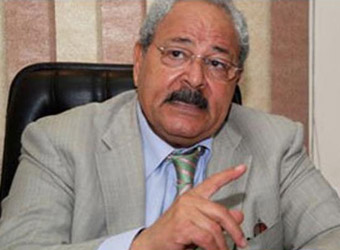The favourite to be the first prime minister in the post-Morsi era has said a polarised Egypt faces the same challenges as post-apartheid South Africa, and named national reconciliation and economic renewal as his top two priorities should his appointment be confirmed.
Samir Radwan, a development economist and former finance minister, was first contacted about the role on Monday and is at least the third person to have been considered for the post since Morsi fell last Wednesday. Mohamed ElBaradei, the liberal figurehead, was vetoed by Salafi – or ultra-orthodox – politicians on Saturday, while lawyer Ziad Baha al-Din is believed to have later turned the position down.
Speaking to the Guardian on the phone from Geneva, Radwan said a faltering economy could only be reformed if Egypt’s divides were bridged.
“We must work really hard on reconciliation – à la South Africa, after apartheid,” said Radwan, who cautioned that his appointment was still not confirmed. “There has been an offer, but it has to be considered all around. The interim president and his advisers rightly want some consensus … It’s not final, and it depends on discussions.”
But Radwan remains the favourite, particularly after a leading Salafi party – al-Nour – publicly endorsed his nomination. Radwan is considered a less polarising figure than Baradei, a former UN diplomat, who is seen by Islamists as too emblematic of secularism.
Radwan already has strong opinions on how to reform Egypt’s economy – which, in an interview with the Guardian this spring, he suggested was at its worst for decades. “You are talking about nearly half of the population being in a state of poverty,” Radwan said in May.
Radwan admitted that with his economic background the offer of the premiership had taken him by surprise as he holidayed in Geneva. A former adviser at the International Labour Organisation, Radwan said he had thought a role in the finance ministry might be more likely – but that he would take the premiership if his appointment was accepted by all parties.
The delay in the appointment of a prime minister reflects the surprisingly pivotal role of al-Nour within Egypt’s new military-backed administration. Just nine months ago, al-Nour was a key ally of Morsi’s Muslim Brotherhood – but last week it backed his removal in a high-stakes move that gave the party a place at the bargaining table in post-Morsi Egypt, but risked alienating its pro-Morsi support base.
For Egypt’s secular-slanted new government, al-Nour’s continued involvement is crucial because of the support it is thought to wield on Egypt’s streets. But by engaging in the government, al-Nour risks upsetting the very supporters who currently give it such clout – and its rejection of ElBaradei last weekend was therefore considered an attempt to show its powerbase that the party’s involvement was yielding dividends.
Source: The Guardian
